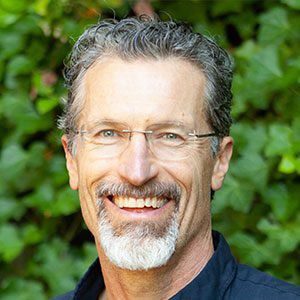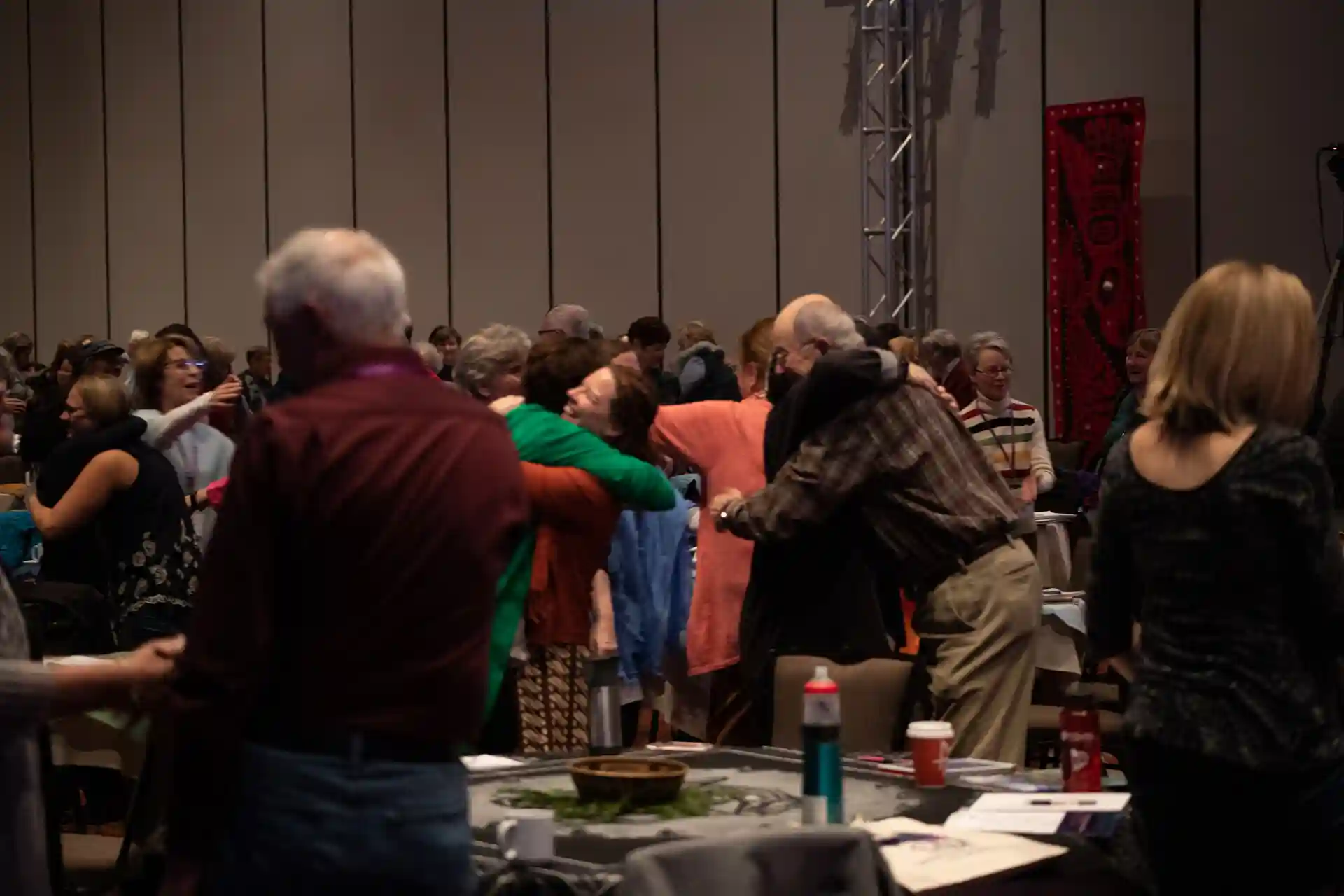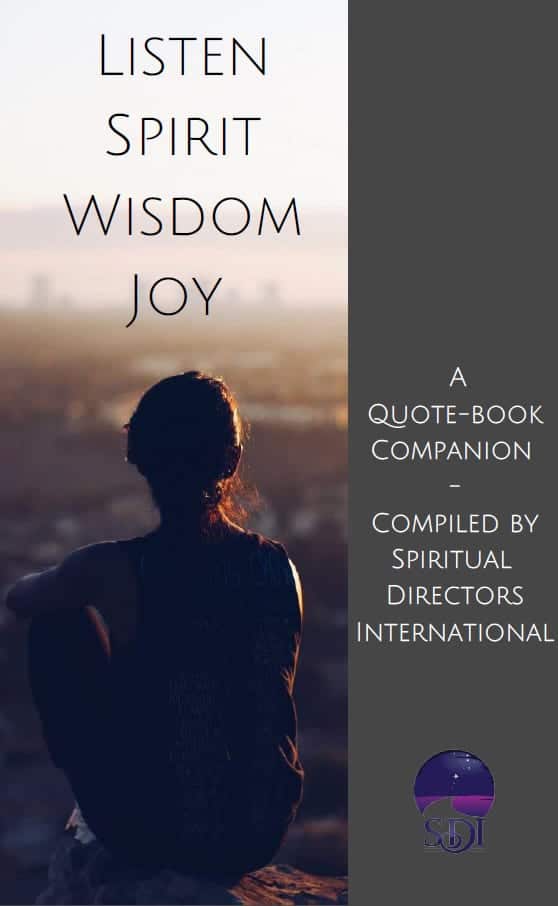In our schools and in our homes, let’s teach our children how to listen and converse with new people to make them feel welcome. Let’s teach our kids how to ask others for their stories and how to receive them warmly and nonjudgmentally. Let’s start a paradigm where all new relationships seek the compassionate knowledge of where someone comes from (including their family, cultural and spiritual heritage) and where they’re headed. Let’s create citizens who can leverage person-to-person hospitality into a new sense of community.
“It is hard for mortals to see divinity.”
— Homeric Hymn to Demeter, 6th or 7th century BCE
Hospitality is an industry in the United States, not a way of living. Rather than welcome each other based on our common humanity, we often divide each other into castes — financial, educational, racial, ethnic, gender-based. We judge and sort, include and exclude. And security is often our rationale. Those who are outside our zones of familiarity are often kept at a distance if not treated with suspicion. Offering welcome to a stranger can be dangerous, we are taught. Probably not a good idea even to acknowledge or talk to the homeless person sitting quietly at the street corner. Who knows what might happen?
Yet in ancient Greece such hospitality was the norm. In Homer’s Odyssey, even noble families welcomed strangers, vagabonds, beggars into their homes. They were offered food, warmth and shelter and asked to tell the story of where they came from and explain their purpose.
“Telemachus saw her long before any one else did … He caught sight of [the goddess] Minerva [disguised as a man] and went straight to the gate, for he was vexed that a stranger should be kept waiting for admittance … “Welcome,” said he, “to our house, and when you have partaken of food you shall tell us what you have come for.”
The Odyssey, Book I
Telemachus is the son of Odysseus, the long-suffering leader who spent years trying to find his way home after the Trojan War. And Telemachus knows how important it is to treat strangers well — for in ancient Greece a beggar could easily be a god in disguise. Those who spurn such a god will be punished by divinity while those who show true hospitality will find divine favor.
In this sense, compassion and generosity act as insurance. They are essential tools for living. And indeed they pay off well for Telemachus when his own father, after many years of wandering, shows up at the front door dressed as a mendicant.
What does this have to do with listening and ending divisiveness?
Everything.
We seem to have forgotten this ancient idea of welcome – even in our conversations. We have grown so isolated and defensive about everything from immigration to elections to vaccinations that we cannot seem to unite on anything or even discuss the important issues that impact all of us. We are fragmented and dysfunctional as a country. The rancor, the rush to judgment and the demonizing of the other found on social media are now mirrored by government officials on local, state and federal levels.
Isn’t it time for a revolution in how we relate to each other? Isn’t it time to move from what separates us to what unifies us?
I believe our common good grows from our shared sense of community.
So here’s my modest proposal, inspired by the ancient Greeks:
- In our schools and in our homes, let’s teach our children how to listen and converse with new people to make them feel welcome. Let’s teach our kids how to ask others for their stories and how to receive them warmly and nonjudgmentally. Let’s start a paradigm where all new relationships seek the compassionate knowledge of where someone comes from (including their family, cultural and spiritual heritage) and where they’re headed. Let’s create citizens who can leverage person-to-person hospitality into a new sense of community.
And we can start by offering conversational hospitality in everyday situations:
- When we first have a chance to chat with people, let’s take time to meet them where they are. Let’s ask open-ended questions as we seek to understand. Let’s start by making space to learn about this person before us. Let’s ask them to tell the story of what matters to them, what they love to do, what makes them feel alive. Let’s foster connection before we follow any other agenda.
Hospitality is a wonderful thing, but I don’t believe we have to become a nation of Airbnb providers. The most important front door to open is the one that leads to our hearts and minds. Still, if we all knew how to act as hosts, if we felt it was the cultural norm to treat a stranger with respect and kindness, I believe life in general would get better. We need to adopt compassion, not as a fuzzy ideal, but as our most practical tool to build society by building relationships. Suspicion, uncertainty and fear all begin to dissipate when we make space for someone’s story,
Let’s call this approach “audacious hospitality.” It builds on the key aspects of spiritual direction and spiritual companionship – listening, trust, authenticity, mutual respect and compassion. Spiritual directors and companions, who serve people from all traditions and orientations through their “deep listening,” are exemplars of my radical solution to divisiveness. They are present and kind, welcoming us through their attention, “establishing a safe space, listening deeply and intently, spiritually, so that our authentic self may shine through.” (You can learn more about spiritual direction and companionship here.)
After all, I believe that God — or infinite energy — is in everyone. We’re born with it. We all have the capacity to give and receive love. If that’s not God-like, I don’t know what is. Regular practice in compassion should make it much easier to see this shared divinity.
In India, they’ve already discovered this truth. According to Wikipedia, the common Hindu greeting “Namaste,” is usually spoken with a slight bow. It means simply:
“I bow to the divine in you.”
Next time you greet someone, try it. And explain what you’re doing. Were there smiles? Curiosity? What happens might surprise you, might delight you. If enough of us did this with good heart, I imagine it being the beginning of the end of divisiveness. Worth a try don’t you think?






3 thoughts on “Listening to the Stranger – A Radical Proposal to End Divisiveness”
Wonderful sentiments Steven and clearly articulated. Thanks for this piece of encouragement. Your ‘unofficial’ job title is very apt! Have a great day Namaste 🙏🏼 🕊
Thank you, Heather. Namaste to you, too. I am grateful that you took the time to read the post and that you are part of our community. Blessings to you in all you do.
Radical hospitality is also a very Christian concept—exemplified by Jesus in his preference for the poor and marginalized. One of the acts of mercy considered essential in Christianity is to welcome the stranger.